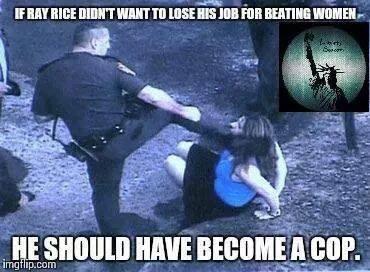Iowa Forfeiture: A ‘System Of Legal Thievery’?
” Tired of working minimum-wage temporary jobs in his hometown of Chicago, Michael Sanchez-Ratliff took his grandfather’s advice and embarked on a cross-country trip last March that he hoped might change his life.
The plan: Hitch a ride with a family friend to California, visit relatives and check out community colleges there.
Sanchez-Ratliff, then 20, did something that in hindsight wasn’t the best idea, but isn’t illegal. He took with him his entire life savings, including about $14,000 provided by his grandmother and an additional $5,000 he had saved from working.”
” The much-anticipated trip took an unexpected turn about eight hours in, as flashing lights appeared in the rear-view mirror. A Pottawattamie County sheriff’s deputy stopped the vehicle for traveling 5 miles per hour over the speed limit.
An hour later, the deputy seized Sanchez-Ratliff’s cash. Despite a clean criminal record and a search that turned up no sign of drugs or other illegal activity, the deputy concluded the money must somehow be linked to a crime.
Sanchez-Ratliff is hardly alone.”
The Register continues …
” A Des Moines Register investigation into the use of state and federal civil forfeiture laws in Iowa reveals that thousands of people have surrendered their cash or property since 2009. The system is stacked against property owners while raising millions of dollars annually for law enforcement agencies across the state, something critics contend encourages policing for profit over promoting public safety.
The bulk of forfeitures reviewed by the Register resulted from traffic stops, often for minor violations and involving vehicles with out-of-state plates. But cash or property also was seized after police were called or sent to homes or businesses. In a few cases, police seized cash carried by johns caught up in prostitution stings.
Among the Register’s findings:
• Law enforcement agencies in all but seven of Iowa’s 99 counties have used the state’s civil forfeiture law since 2009. They have seized cash or other property 5,265 times. At least 542 more cases have used federal forfeiture laws.
• Many of those property owners — including Sanchez-Ratliff — are sent on their way after surrendering their cash or other property. A sampling of about 600 forfeiture cases from the Iowa counties that seized the most property over the past six years revealed dozens of instances with no record of an arrest or criminal charges.
• Iowa police departments and other law enforcement agencies have seized nearly $43 million over the past six years — money divided among agencies involved in each forfeiture case. Under law, the money is supposed to be used to “enhance” their crime-fighting capabilities.
• Most of the money is used to buy equipment, train officers and fund multiagency task forces. But it also has been spent on tropical fish, scented candles, mulch and other items that appear to have little or no direct link to law enforcement activities.
Local law enforcement agencies generally keep 90 percent of forfeited cash, split among the agencies that seized the property. The rest goes to the state, for use by the Iowa Attorney General’s office and the state’s public safety departments.”
The Des Moines Register offers a serious investigation into the blatantly unconstitutional process of stripping law abiding citizens of their money and possessions without due process , otherwise known as “civil” asset forfeiture . Read the whole thing and remember this is not an issue limited to Iowa , your state is doing it too .
Civil asset forfeiture reform now . Every “war” results in a loss of freedoms but none so much as the “war on drugs” .
—













